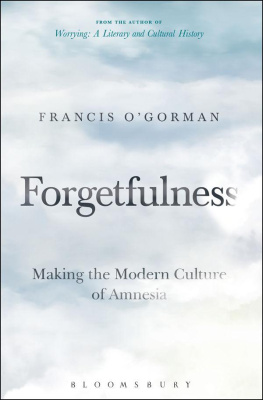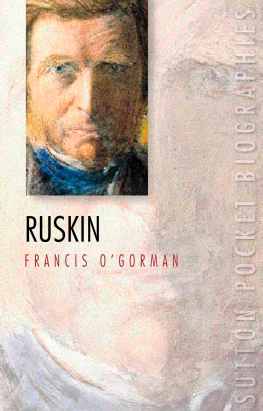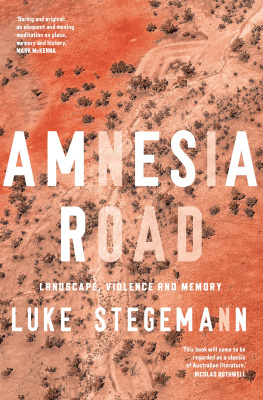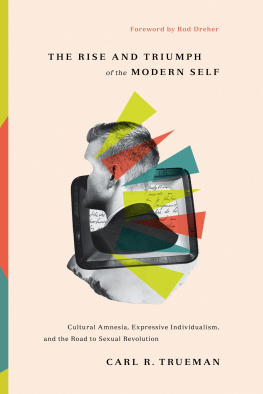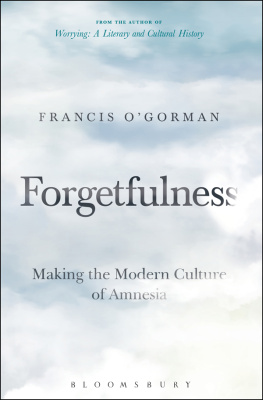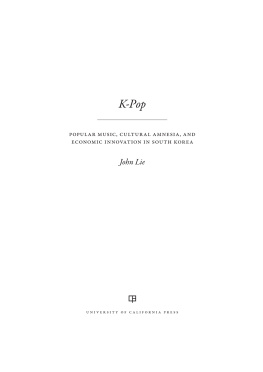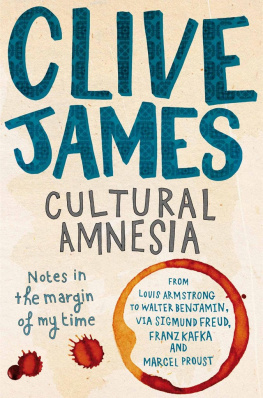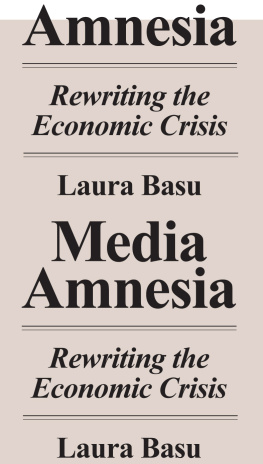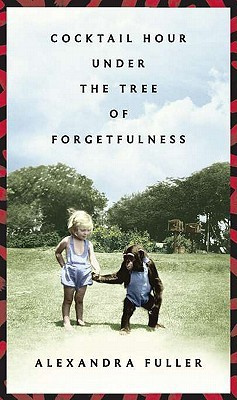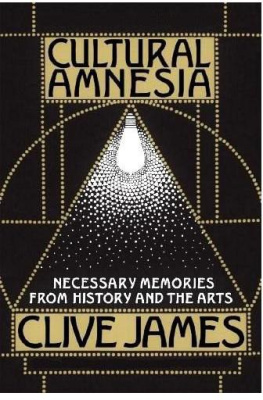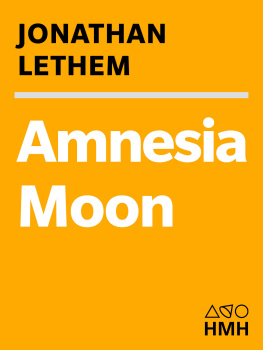Francis OGorman - Forgetfulness: Making the Modern Culture of Amnesia
Here you can read online Francis OGorman - Forgetfulness: Making the Modern Culture of Amnesia full text of the book (entire story) in english for free. Download pdf and epub, get meaning, cover and reviews about this ebook. year: 2017, publisher: Bloomsbury Publishing, genre: Religion. Description of the work, (preface) as well as reviews are available. Best literature library LitArk.com created for fans of good reading and offers a wide selection of genres:
Romance novel
Science fiction
Adventure
Detective
Science
History
Home and family
Prose
Art
Politics
Computer
Non-fiction
Religion
Business
Children
Humor
Choose a favorite category and find really read worthwhile books. Enjoy immersion in the world of imagination, feel the emotions of the characters or learn something new for yourself, make an fascinating discovery.
- Book:Forgetfulness: Making the Modern Culture of Amnesia
- Author:
- Publisher:Bloomsbury Publishing
- Genre:
- Year:2017
- Rating:3 / 5
- Favourites:Add to favourites
- Your mark:
- 60
- 1
- 2
- 3
- 4
- 5
Forgetfulness: Making the Modern Culture of Amnesia: summary, description and annotation
We offer to read an annotation, description, summary or preface (depends on what the author of the book "Forgetfulness: Making the Modern Culture of Amnesia" wrote himself). If you haven't found the necessary information about the book — write in the comments, we will try to find it.
Forgetfulness: Making the Modern Culture of Amnesia — read online for free the complete book (whole text) full work
Below is the text of the book, divided by pages. System saving the place of the last page read, allows you to conveniently read the book "Forgetfulness: Making the Modern Culture of Amnesia" online for free, without having to search again every time where you left off. Put a bookmark, and you can go to the page where you finished reading at any time.
Font size:
Interval:
Bookmark:
Praise for
Worrying: A Literary and Cultural History
Francis OGorman offers a witty, philosophical meditation on the meaning of worry, where it comes from and how it came to be our constant companion ... Although the visual arts and music can provide temporary distraction for the worrier, we need wordsfragile, unstable wordsto express it. Thankfully OGorman has given us some more.
Liz Hoggard, The Independent
In his highly anxious but very valuable new book, Francis OGorman seeks to pin down worry as an idea and to record the stories we tell ourselves about it; he sets worrying in both its recent and its deeper cultural history, and he also contemplates the various ways writers and artists have dealt with worry as a category of experience ... Worrying also fits into the tradition of breaking down myths and tropes into discrete units, a bit like Mircea Eliades Myth and Reality or C. S. Lewiss Studies in Words. We care about these books because we need stories about the cultural past so that we might have a sense of ourselves in time. The real value of OGormans book lies, I think, in the way it flags the politics of the stories we tell ourselves.
Josephine Livingstone, New Republic
[An] affectionate tribute to low-level fretting ... Mr OGorman is a pleasant and good-humored guide, and his candid, self-effacing style helps mitigate any boredom. If there is a message, it addresses the ever-expanding cottage industry around happiness and wellbeing ... Mr OGormans celebration of the wonderful eccentricity of human nature is both refreshing and necessary.
The Economist
The best parts of this book, as you would hope from a literary critic, are the textual readings. OGorman doesnt just provide illuminating discussions of worry literature ... He also reads worry per se as a literary trope, a comedy of mental manners in which its victims are like stage characters trapped in their humors, always enacting the same scenes and parroting the same catchphrases. He is often dryly funny himself ... While it failed to assuage any of my worries, this winning little book still made me root for and, yes, worry a little for its author. I hope this review stops him fretting for a bit, at least until the next worry arrives.
Joe Moran, The Guardian
An engagingly personal quest to find out what [worry] means, both for good and bad ... [S]ome of the most striking parts of this book are those in which [OGorman] shares some illuminating intuition about worrythat it can be a species of self-indulgence, a way of extending ego into a conversation, or of somehow confirming selfness in the head; or that worriers might, deep down, think too highly of themselves, believe that they are too good to err and certainly too good to admit errors or apologize for them.
Catherine Morris, Times Literary Supplement
It is worth reading for many reasons, but surely because it treats worrying as a complex issue, that is to say, as a feeling that might have a lot of good stuff to be said about it. Worrying works because its not all doom and gloom, it avoids self-pity, and manages to have both an intellectual and personal discussion of an emotional issue from various and surprising angles.
Charlie Pullen, The Bookbag
It is 4.06 am. Francis OGorman is in bed. His partner and three cats lie fast asleep beside him. But he is awake, worrying. So begins this subtle, exploratory, completely original book.
John Carey, The Sunday Times
[An] intelligent and probing study.
James Williams, The Tablet
In some enjoyably subversive pages, [OGorman] unpicks a few of modernitys best-loved fairy tales.
Dan Hitchens, The Spectator
Worrying is not a self-help book. In fact, it frequently pokes holes in that genre. Nor is the book spiritual in any sense. As the books subtitle suggests, this is a literary and cultural history, as well as a personal one (OGorman is a self-confessed worrier). The book is an exercise in worrying about worry.
Karen Swallow Prior, Christianity Today
Keeping us up with his sleepless stressesdid I forget to lock the door downstairs?Francis OGorman comes to think that such anxieties, rather than being just a niggling malfunction, might also represent a constructive aspect of the human condition. Whats the use of worrying?
Rachel Bowlby, Professor of Comparative Literature, Princeton University, USA, and author of A Child of Ones Own: Parental Stories
Francis OGorman, from English, Irish, and Hungarian families, was born in 1967 and educated as C. S. Deneke Organ Scholar of Lady Margaret Hall, Oxford, where he took a double first and a doctorate in English literature. He is the author or editor of 23 books, mostly on English literature, and of essays on literature, music, and the condition of the modern English university. His Worrying: A Literary and Cultural History (Bloomsbury, 2015), described by John Carey as subtle, exploratory, completely original, was a Guardian Book of the Week, a Sunday Times Must Read, and one of Bookbags History Books of the Year, 2015. For a decade, Francis OGorman held a chair in the School of English at the University of Leeds; he is now Saintsbury Professor of English Literature at the University of Edinburgh. When not working, he likes playing the organ, walking Arthurs Seat, or sitting in a bar.
Forgetfulness
Making the Modern Culture of Amnesia
Francis OGorman
Bloomsbury Academic
An imprint of Bloomsbury Publishing Inc

A Clear Day and No Memories, Wallace Stevens (18791955)Opus Posthumous ([1957] 1989)
We must not think we have an easy task when we have a difficult task, or that we are living in a natural state when we are really living in an artificial one.
Walter Bagehot, Lombard Street: A Description of the Money Market (1910)

Photograph by Francis OGorman, 2016
Contents
Here is a good deal of room for mistake and prodigality before you come to the edge of ruin.
EDMUND BURKE
Observations on a Late Publication, intituled The Present State of the Nation (1769)
How was I going to begin? What was I planning to say?
I cant remember.
I should have written it down when it first occurred to me.
Oh dear.
* * *
The experience of forgetting is routine. We have a choice of words and phrases for regular, common-or-garden forgetting in English in case we become bored with the familiarity of Ive forgotten. The choice includes: I cant recall, its gone out of my head, Ive lost my train of thought, its slipped my mind, its on the tip of my tongue, itll come back to me, its gone.
Ordinary forgetting can be a source of embarrassment and frustrationas well as mystery. I sometimes forget what a student has just said to me in a seminar and I mean, literally, just said to me. I stare blankly for a moment. I feel a mild physical sense of panic because my response has been taken away.
There are worse torments. Some of those are experienced by people who are about to speak in publicto a business meeting, a lecture room, a live TV or radio audience. The anxiety is that, at some point, there will be nothing more to say because the speakers mind will, as we phrase it in another one of those synonymous expressions, have gone blank. This is familiar, too. So much so that there is professional advice on YouTube about how to handle temporary loss of words in public: search Uh oh, I have forgotten what I was going to say. If the ordinary human brain has an extraordinary capacity to recall, it has also a disturbing capacity to let us down.
Font size:
Interval:
Bookmark:
Similar books «Forgetfulness: Making the Modern Culture of Amnesia»
Look at similar books to Forgetfulness: Making the Modern Culture of Amnesia. We have selected literature similar in name and meaning in the hope of providing readers with more options to find new, interesting, not yet read works.
Discussion, reviews of the book Forgetfulness: Making the Modern Culture of Amnesia and just readers' own opinions. Leave your comments, write what you think about the work, its meaning or the main characters. Specify what exactly you liked and what you didn't like, and why you think so.

